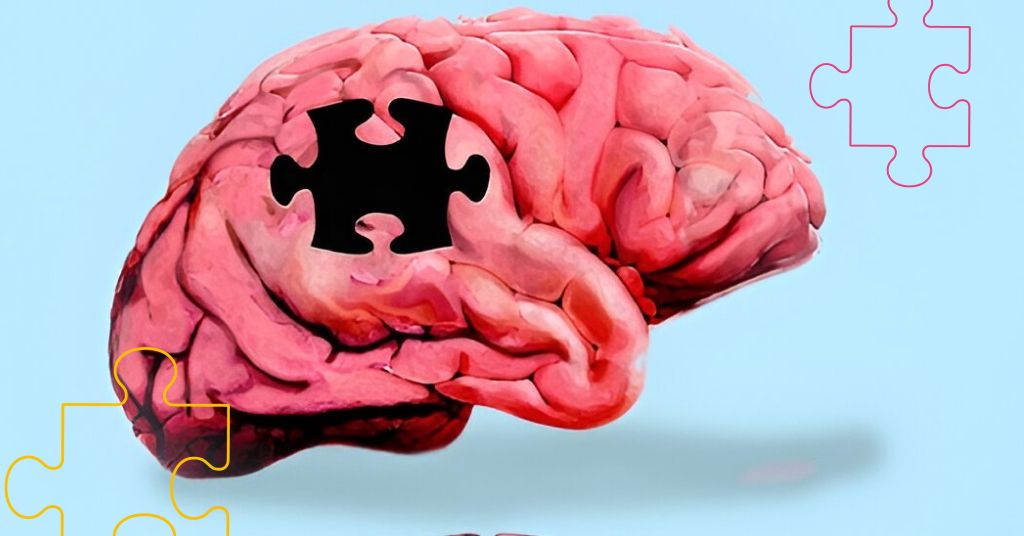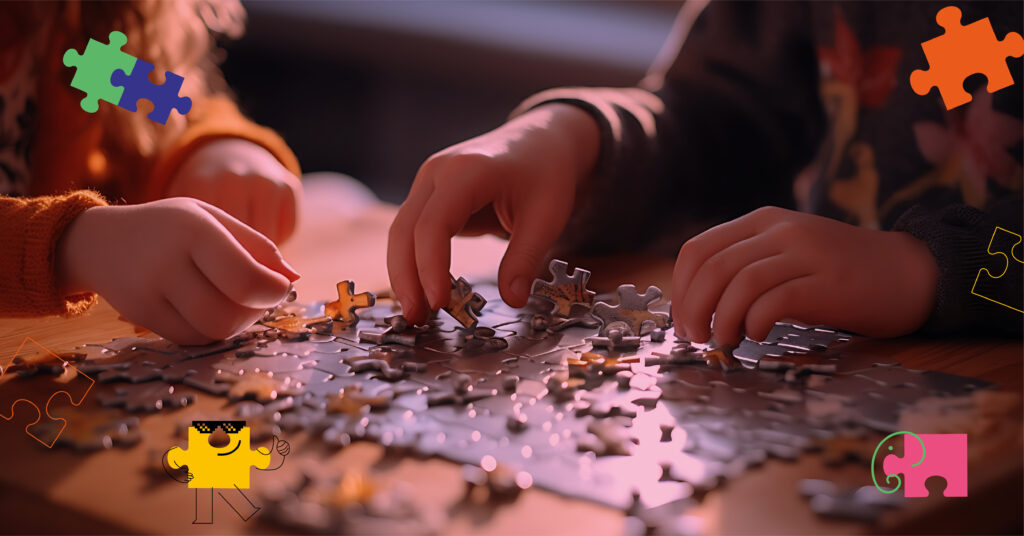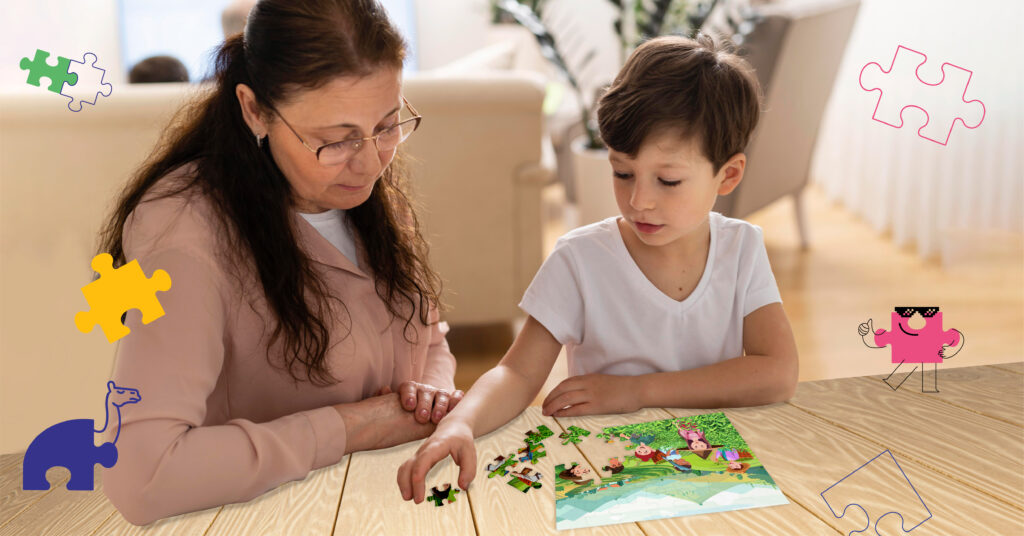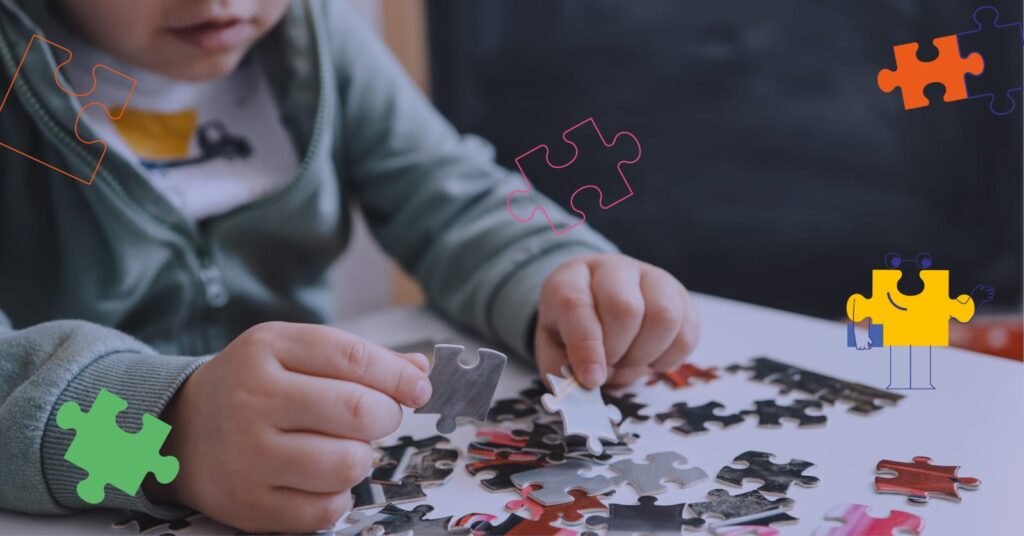Puzzle solving has long been a cherished activity for children, offering both entertainment and educational value. But beyond the fun, puzzles serve a crucial role in brain development, enhancing cognitive abilities, motor skills, and emotional growth. The science behind puzzle-solving reveals that this activity has a profound impact on children’s brain health, fostering essential life skills and setting the foundation for future learning.
In this blog, we’ll explore the science behind puzzles and how they contribute to children’s brain development and overall well-being.
Also Read: Different Types of Puzzles for Kids
1. Developing Critical Thinking and Problem-Solving Skills
Puzzles are an excellent way to encourage critical thinking in children. Whether it’s figuring out how jigsaw pieces fit together or solving a more complex brain teaser, kids must think strategically and logically. When solving puzzles, children are required to analyze the problem, think of possible solutions, and test those solutions to find the correct answer. This trial-and-error process promotes problem-solving skills that are critical for their future academic and life success.
A. Pattern Recognition
Many puzzles, especially jigsaw puzzles, involve recognizing patterns. As children sort through pieces and figure out where each one fits, they are training their brains to recognize shapes, colors, and patterns—key skills that are directly linked to critical thinking and mathematical reasoning.
B. Perseverance and Patience
Puzzle-solving also teaches kids patience and perseverance. Completing a puzzle isn’t always straightforward—it can be challenging and sometimes frustrating. But through perseverance, children learn the value of sticking with a problem until it’s solved. This resilience is a crucial life skill that translates into other areas, from academics to personal challenges.
2. Boosting Memory and Attention Span
Solving puzzles requires memory and focus, two fundamental skills for academic success and everyday functioning. For example, when working on a jigsaw puzzle, children must remember the shapes and colors of the pieces they have already examined to figure out where they belong. This repetitive process strengthens their short-term memory and trains their brain to hold multiple pieces of information at once.
A. Strengthening Short-Term Memory
When children remember where certain puzzle pieces fit or recall strategies they’ve used to solve similar problems, they are engaging their short-term memory. According to cognitive research, regular use of short-term memory through activities like puzzles can enhance overall memory retention, aiding in subjects like reading and math.
B. Improving Focus and Attention Span
In today’s fast-paced digital world, maintaining focus can be a challenge for children. Puzzles are an effective way to help kids develop a longer attention span. When they sit down to solve a puzzle, they learn to focus on a single task, ignoring distractions. This increased focus is an essential skill for academic achievement, helping children better manage classroom tasks, homework, and exams.
3. Enhancing Spatial Awareness and Visual-Perception Skills
Puzzles, particularly jigsaw puzzles, are known to enhance spatial awareness and visual perception in children. These skills are not only important for understanding how objects relate to each other but are also foundational for subjects like geometry and engineering.
A. Understanding Spatial Relationships
By manipulating puzzle pieces and figuring out how they fit together, children improve their understanding of spatial relationships. They learn to recognize how shapes and patterns interact, helping them develop skills that will later apply to activities like navigating space, building structures, or even understanding maps.
B. Improving Visual Discrimination
When children look for specific pieces in a puzzle, such as a particular shape or color, they are using visual discrimination skills. This process helps children differentiate between objects and patterns, which is critical for reading and math. Strong visual discrimination aids in recognizing letters, numbers, and symbols, making puzzles a great pre-reading activity.
4. Improving Fine Motor Skills and Hand-Eye Coordination
Puzzles are an excellent way to improve fine motor skills and hand-eye coordination in children. Manipulating puzzle pieces, turning them around, and fitting them together require children to use the small muscles in their hands and fingers, which are critical for writing, drawing, and other activities.
A. Building Fine Motor Strength
As children handle puzzle pieces, they develop greater control over their finger movements. This strengthens their fine motor abilities, which are necessary for tasks like buttoning clothes, using scissors, and holding a pencil properly. For young children, wooden puzzles or larger jigsaw puzzles can be especially helpful in building these skills.
B. Hand-Eye Coordination
Completing a puzzle also improves hand-eye coordination, as children must coordinate what they see with how they manipulate the puzzle pieces. This coordination is essential for activities like playing sports, tying shoes, and performing everyday tasks that require precision.
5. Promoting Emotional and Social Development
Puzzles not only stimulate cognitive growth but also contribute to emotional and social development in children. Working on puzzles, either alone or in a group setting, helps children develop important emotional and interpersonal skills.
A. Building Confidence and Self-Esteem
When children successfully complete a puzzle, they experience a sense of accomplishment. This boosts their confidence and encourages them to take on more challenging tasks. Every small win reinforces a positive mindset and helps children develop self-esteem.
B. Teaching Patience and Stress Relief
Puzzle-solving can be a calming and stress-relieving activity. Children learn to stay patient and focused, even when the puzzle is difficult. This ability to remain calm under pressure helps children manage stress in other areas of life, such as school or social interactions.
C. Encouraging Teamwork and Communication
Working on puzzles in a group setting, such as with family members or classmates, encourages teamwork and communication. Children must share ideas, listen to each other, and cooperate to complete the task. These skills are crucial for developing healthy social interactions and relationships.
Also Read: 7 Surprising Ways Puzzles Are Good for Your Child
Puzzles are much more than a fun pastime—they are powerful tools that can significantly impact brain development in children. From improving memory and attention span to enhancing fine motor skills and emotional intelligence, puzzles offer a holistic approach to learning. As children engage in puzzle-solving, they develop critical thinking, spatial awareness, and problem-solving abilities that will serve them throughout their lives.
For parents and educators, incorporating puzzles into a child’s daily routine is a simple and effective way to boost brain health and foster lifelong learning. Whether it’s a classic jigsaw puzzle or a challenging brain teaser, the benefits are immense and far-reaching.
So the next time you see your child absorbed in a puzzle, know that they are not just having fun—they’re building a foundation for a sharper, healthier brain.



